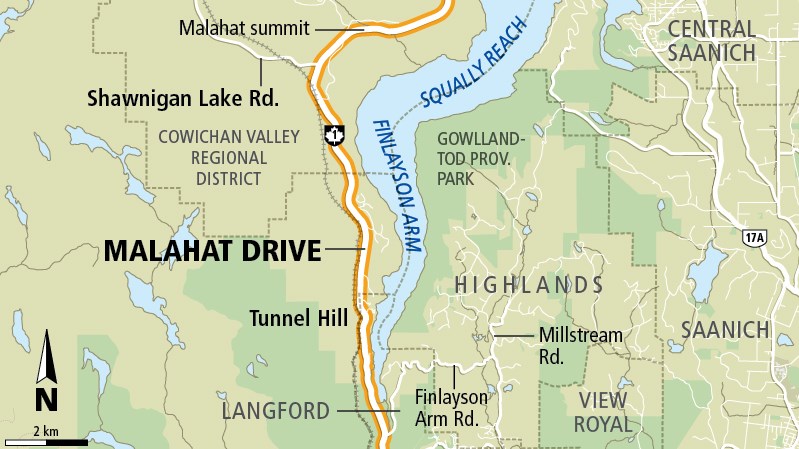In 1996, there was a crisis over the Capital Regional District water supply. The infrastructure was controlled by a corporation run by four core municipalities. The outside areas were ignored; water conservation was dismissed as unnecessary; the old water district actually logged in the watershed to raise income without regard for the risks to the water supply; and a provincial highway ran adjacent to the Sooke Reservoir.
In response, the government of the day appointed me to conduct public consultations. Following overwhelming public support, I recommended the transfer of the water supply assets and governance to the CRD, with a mandate to implement water conservation, the closing of the old Highway 117 that ran directly alongside the reservoir and designating the land surrounding the watershed as a provincial park.
Unlike many inquiry reports, mine was accepted and implemented in full by the NDP government of the day under the particular leadership of then-ministers Andrew Petter and Moe Sihota.
Today, the Victoria region is blessed with one of the safest, cleanest and most reliable water systems in the world. The reservoir is fed by rainwater and snowmelt. The entire watershed and surrounding areas are protected by provincial law. As a result, the water needs only minimum treatment, unlike the chemical soup endured by many Canadians.
Before these changes, the water supply was at risk from siltation and organic overload from logging. There were reported incidents of “joyriders” crashing into the water, with the risk of petrochemical contamination.
The closure of the old highway was strongly supported by then regional medical health officer Richard Stanwick because of the risks to the entire region from either deliberate sabotage or negligent harm to the water supply.
The closure was technically difficult because it required the co-operation of a private land owner who would be land-locked. The broad public support for my recommendations was the final push to get this road closed.
Now, more than 20 years later, there are proposals from the current NDP government, including many MLAs and staffers from the 1990s, to undo this great work.
Because a handful of bad drivers block the Malahat a few times a year, the province is proposing to punch a new highway through the Sooke Hills Wilderness Regional Park. This would create risks to the security and purity of the water supply.
Does anyone want a wildfire caused by a thrown cigarette to overrun the park and watershed?
Water supply is at risk throughout the world. One need only look south to our neighbours in California to see the potential devastation from a shortage of water to residents, farmers and industry.
It is inconceivable that the unique and priceless asset at Victoria’s doorstep, an asset that has been preserved for 100 years, would be put at risk to mitigate the harm caused by a few speeders on the Malahat.
There are dozens of narrow passes in B.C. as a result of our mountainous terrain. How often do the Coquihalla, Rogers Pass or the Sea to Sky Highway close each year? Why is the Malahat so precious and essential that the drinking water supply of nearly 400,000 people should be put at risk? Why haven’t solutions at a fraction of the price and with no risks not been tried, such as mandatory chain-up in bad weather, heavy fines for no snow tires and proper speed enforcement?
Implementation of my report was rightly extolled by the province as a visionary solution to ensure the safety and purity of the local water supply for many generations to come. Who would have thought then that a future NDP administration would seriously consider destroying that legacy because of an avoidable traffic jam?
David Perry wrote the Perry Report on the Greater Victoria Water Supply in 1996. He is now a lawyer practising in Surrey.



